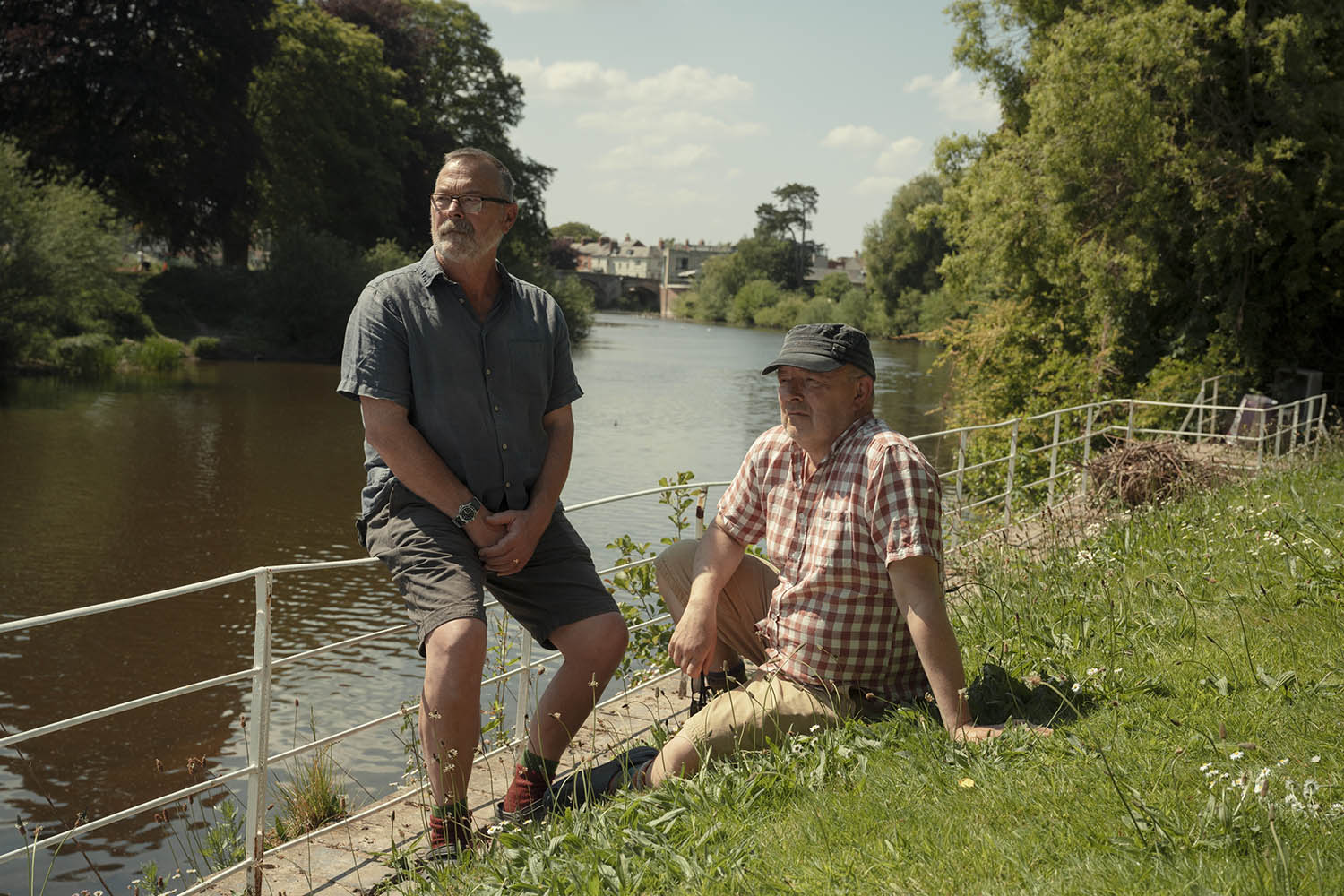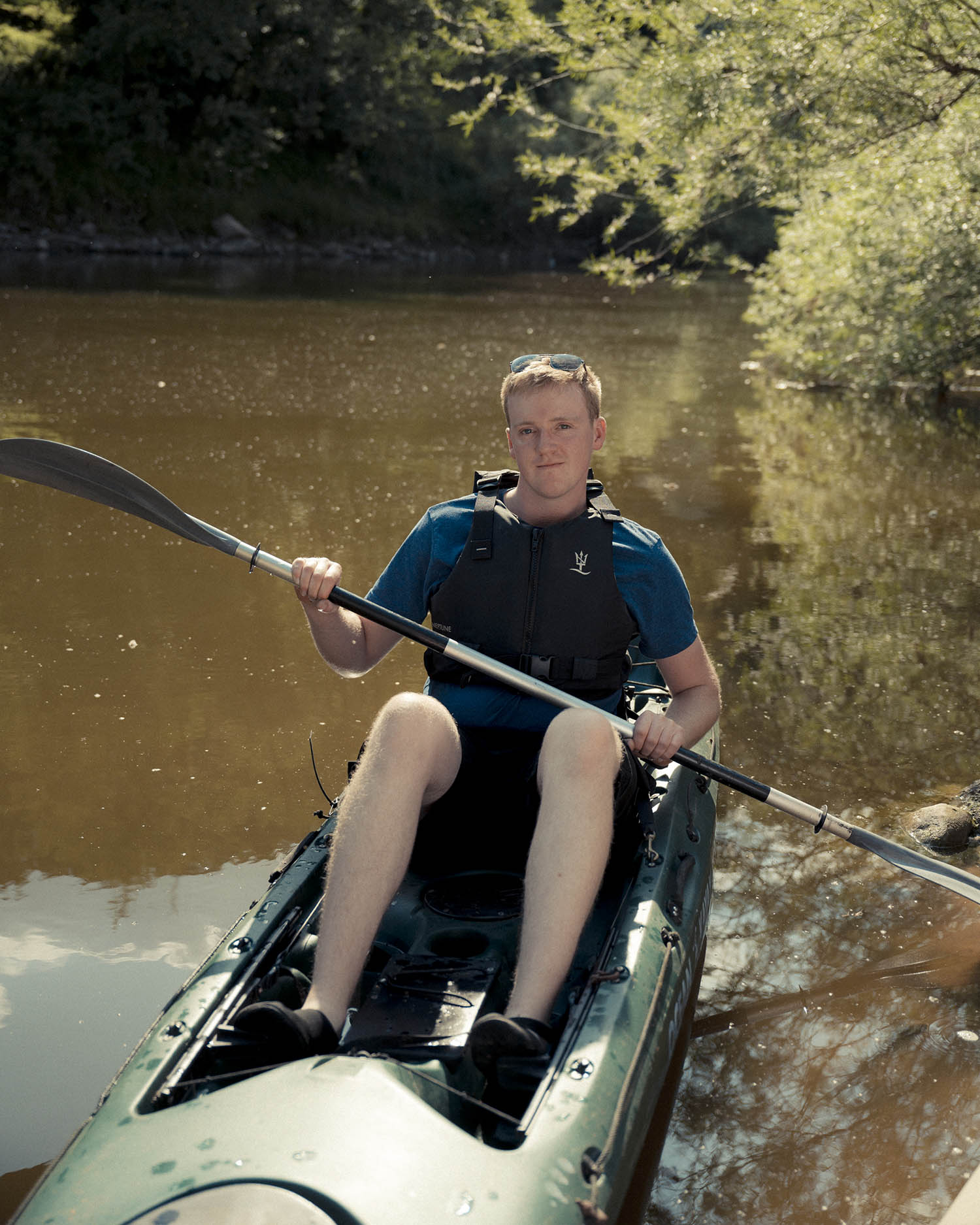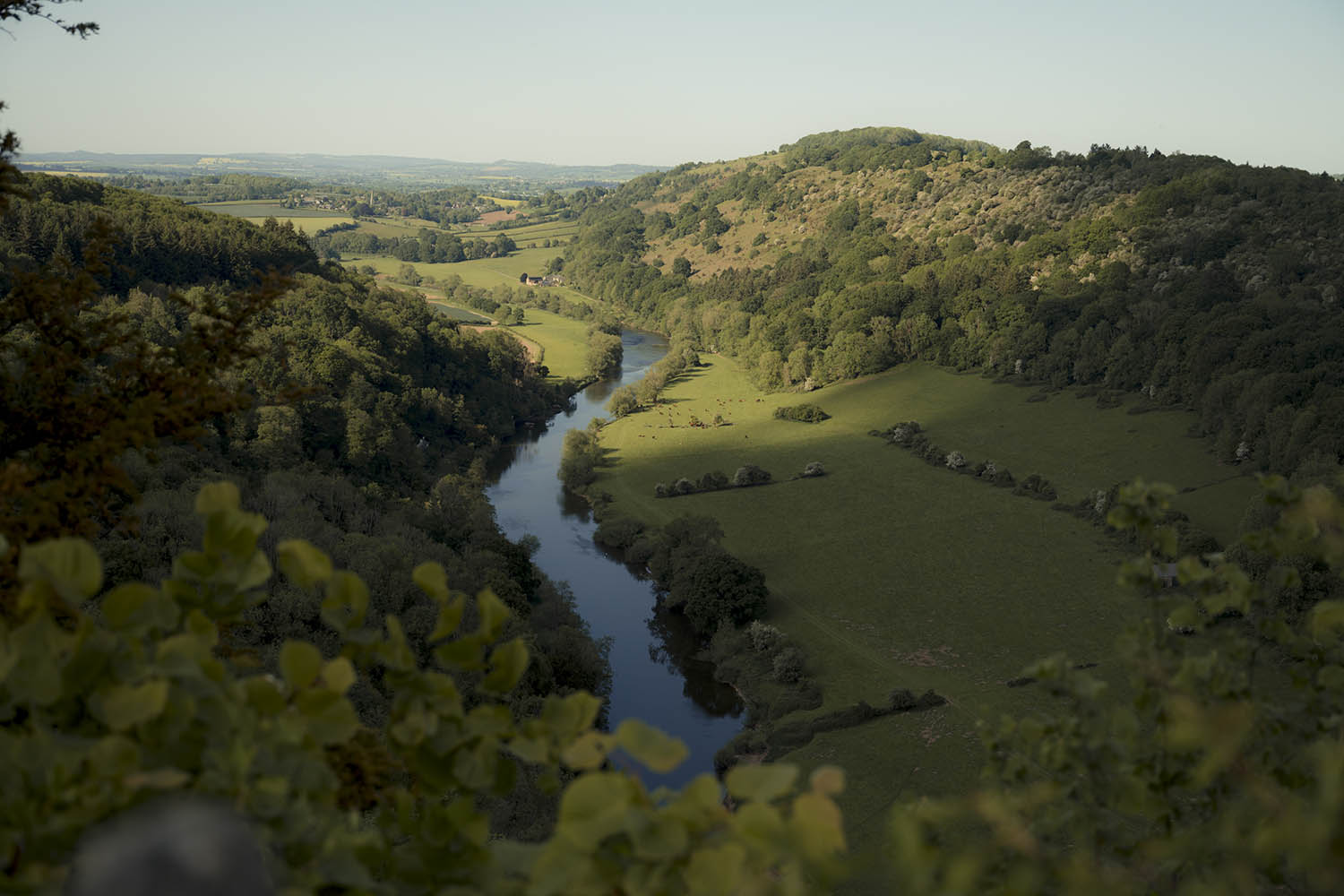Photographs by Francesca Jones
In the summer of 2020, conservation groups noticed that the once crystal-clear waters of the River Wye had turned into a “pea soup”, choking the wildlife and flora.
Alison Caffyn, a researcher, and Christine Hugh-Jones, a member of the Campaign for the Protection of Rural Wales, suspected chicken manure from local poultry factories – which is full of phosphates and can be harmful to river life – was sullying the water. They had been trying to find out how many chickens were kept in the area.
With no reliable official figures, it was slow and painstaking work. They trawled through thousands of planning documents, analysed environmental permits for farms and studied satellite imagery. Caffyn attended planning meetings, spoke with farmers and those opposing the developments, and drove from farm to farm, walking across muddy fields to see the impact for herself.
When their work was done, Caffyn and Hugh-Jones found that the River Wye catchment area contained 23 million chickens.
The UK produces 1.1 billion chickens for consumption every year. A slew of intensive poultry units on farms – housing as many as 200,000 birds – have been given planning permission in the River Wye catchment over the years to meet the nation’s booming demand for chicken. Many supply the local Hereford processing plant belonging to Avara Foods, one of the main providers of poultry in the country.
There had been scant regard for the cumulative environmental impact of all these birds, until Caffyn and Hugh-Jones started counting. When the pair connected the dots between the vast local poultry industry and the dying River Wye, officials from the food companies denied any link to pollution. “We were dismissed for scaremongering,” says Caffyn.
Their warnings triggered claim and counterclaim over who was to blame. In the next few weeks, one of the biggest environmental legal cases seen in the UK is due to be filed in the high court; about 3,000 people living along the Wye have joined a civil claim against Cargill, one of the world’s biggest food firms, and Avara Foods, in which Cargill has a 50% stake.
Newsletters
Choose the newsletters you want to receive
View more
For information about how The Observer protects your data, read our Privacy Policy
Cargill’s supply chain – stretching from the South American savannah to the rich farmland of central England – has seriously damaged the ecology of the Wye, it is alleged. The claimants argue that the firm, which has annual revenues of £120bn, could have foreseen the risk of polluting one of the nation’s best-known rivers, described as the birthplace of British tourism. The chicken industry disputes the claims and says it has “no merit”.
The case set to unfold in the high court is as much a detective story involving determined amateur sleuths and citizen scientists as a conventional legal battle. And at the heart of the case, a question: who almost killed the River Wye?

Mark Hubbard and his husband, Philip Wilson, who live in Hereford on the banks of the Wye, have joined the action and say in recent years they have watched the river transform from a sparkling habitat, teeming with life, to a moribund flow. They are convinced the chicken industry is to blame.
“There are bits of the environment being destroyed all along their supply chain,” says Hubbard. “It’s been so upsetting to watch. It now looks dead compared to how it was.”
Justin Albert, chair of the charity Rewilding Britain and a former head of the National Trust for Wales, who lives in a farmhouse on the Wales-England border overlooking the Wye, says that, as a child growing up in the area, he would see salmon in the river.
“There was a living ecosystem around you. It’s still a beautiful river, but there isn’t the life that there was. It’s basically suffocating. It’s a real shame because this is one of the great rivers.”
Cargill has operated in the UK since 1955 and bought a major poultry processing plant in Hereford more than four decades ago. In 2013, it announced a £35m investment in the plant to increase fresh chicken production, and five years later it combined that operation in the UK with poultry business Faccenda Foods to form Avara.
Cargill’s trail begins in the Cerrado tropical savannah, in Brazil, where it trades in phosphate-rich soy. It is a controversial commodity, with Cargill’s UK imports alleged in recent years to have been linked to farms involved in deforestation in the region. Cargill says it is committed to eliminating deforestation from its supply chain.
The soy imported from Brazil is crushed at a plant in Liverpool and then transported to a mill in Hereford for use as an ingredient in feed for the intensive poultry units supplying Avara, according to the letter before action sent by Leigh Day. The mill produces about 7,000 tonnes of animal feed each week. Avara says soy represents about 20% of their chickens’ diet.
When chickens eat feed containing soy, their manure also contains high levels of phosphates. The legal case will claim that the Wye has been polluted by this nutrient. Excessive levels of nutrients, especially phosphates, in water can fuel the growth of algae blooms, and deplete the levels of oxygen in the water, suffocating a river.
‘It’s basically suffocating. It’s a real shame because this is one of the great rivers’
‘It’s basically suffocating. It’s a real shame because this is one of the great rivers’
Justin Albert, Rewilding Britain
In May 2022, Lancaster University, using research by Caffyn and Hugh-Jones, found chicken litter was the main source of manure-causing phosphate pollution on the Wye, with livestock feed accounting for the largest import of phosphorus into the Wye catchment. Many farmers spread chicken manure on their land as fertiliser.
By this time, people who fished the river and lived along its banks had begun to volunteer, testing the water. Anglers were worried about the decline of the salmon population, the spread of algae and the reported deaths of cygnets.
Their testing found widespread breaches of guideline phosphate targets, with research showing higher levels of phosphorus were close to poultry units. It has been estimated that an annual surplus of between 2,000 and 3,000 tonnes of phosphate was being brought into the Wye area.
Lawyers acting for the thousands of Wye residents argue that Cargill should have known the risks because the company had previously been sued in the US courts over allegations of phosphate pollution from intensive poultry production. “An incredible number of chickens were brought into a relatively small area,” says Oliver Holland, a partner at Leigh Day. “They should have known of the likely impacts.”
In 2001, Cargill was among six firms sued by the city of Tulsa over manure polluting two lakes with an increase of nutrients and specifically phosphates. The case was settled out of court without any admission of liability. In another case, filed in 2005, the farming supply chains of Cargill and other poultry producers were accused by Oklahoma of polluting the Illinois River in Arkansas. It was ruled in 2023 that poultry waste was the “principal contributor” of phosphate pollution.
Locals want Cargill to help pay for the restoration of the Wye. “I was blown away when I learned about the number of chickens in the catchment,” says Justine Evans, 59, a local wildlife cinematographer. “It’s no wonder the river is dying. This is a chance to hold people to account.”
Thomas Garland, 25, from the Forest of Dean, spent his childhood kayaking the river’s waters and jumping off rocks with his brother. “You would see herons and fish bouncing out of the water,” he says. “It’s now murky and the rocks are covered in slime.” He rarely kayaks now.

In January 2023, Avara published a sustainable roadmap to mitigate the potential impact of its supply chain in the Wye catchment, and to ensure it is “no longer contributing to excess phosphate in the River Wye”. From January 2024, manure from Avara farms is not available for purchase as fertiliser within the catchment and is taken out of the area.
Avara says the situation cannot be “simplified to a single root cause” and its suppliers prevent any manure flowing into nearby watercourses. It cites a report published by Cardiff University last year, which said the focus on phosphates was not a “silver bullet” for improving water quality. Environmental analysis suggests more than 70% of the phosphates in the river enter from agricultural land, with wastewater discharges and storm overflows also contributing to the pollution.
Welsh Water will also be a defendant in the claim, which also covers the catchments of the River Usk and the River Lugg, a tributary of the Wye. Welsh Water said: “We are engaging with Leigh Day regarding the alleged claims. We take our responsibility for protecting the environment seriously and over the next five years will invest £2.5bn to improve the environment, including £889m on storm overflows.
“This will aim to reduce spill numbers but also reduce harm. Through our phosphorus investment plan, by 2030 we will have removed 90% of the available phosphorus load from our wastewater treatment works discharging to failing [protected] rivers in our operating area.”
Cargill said in a statement: “We continue to believe that Leigh Day’s accusations are without merit and not supported by scientific research or independent expert opinion.”
Avara said: “Avara Foods does not, and never has, spread manure or managed land in the Wye catchment. No manure reaches the environment from the farms that supply us because all birds are reared indoors, with manure fully contained. Livestock manure usage in arable farming is regulated by the Environment Agency.
“To focus solely on excess phosphate, which peaked in 1975 and is now at the same levels as the 1920s, is overly simplistic as it ignores other factors and necessary solutions. We have worked with the farmers who supply us to implement our roadmap and we are proud of the progress that all stakeholders have achieved.”
Avara says it only uses certified sustainable soya and there was currently zero supply from Cargill to the Hereford mill.

